forum
library
tutorial
contact

Dworshak Dam Releases Reduced to Conserve
Water for Fish Returning August, September
by Staff
Columbia Basin Bulletin, August 7, 2015
|
the film forum library tutorial contact |

|
Dworshak Dam Releases Reduced to Conserve
by Staff
|
... goal is to keep temperatures below 72 degrees, but he added that
the cost-benefits of those actions are still being evaluated.
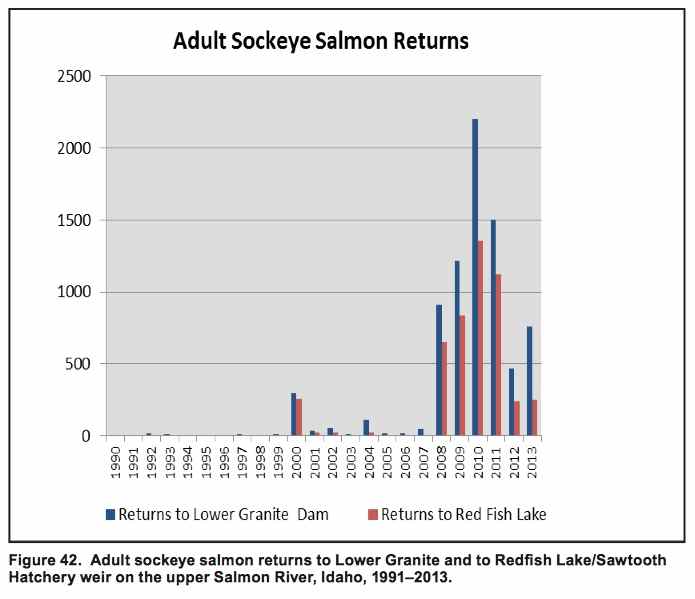 Fisheries and water managers have been tightening their attention on water supply matters in the Columbia Basin so that the best possible fish survival conditions can be maintained through August and September.
Fisheries and water managers have been tightening their attention on water supply matters in the Columbia Basin so that the best possible fish survival conditions can be maintained through August and September.
The Technical Management Team, a decision-making panel of state, federal and tribal managers, largely focused attention again on operations at Dworshak Dam in Idaho, reaching a consensus to reduce releases from the dam from 7.5 thousand cubic feet per second to 5.4 kcfs as of Thursday night.
The higher flows have been in place to keep water temperatures down in the lower Snake River, and it has been effective -- temperatures have been hovering around 65 degrees, below the targeted maximum of 68 degrees.
But there is a constant eye towards water supply in coming weeks, so there was agreement that reducing flows to 5.4 kcfs would be prudent.
"Our bucket of useful water is dwindling," said Joe Skalicky of the U.S. Fish and Wildlife Service during Wednesday's TMT teleconference. "It makes sense to conserve that water and keep things going."
It is a Columbia Basin-wide conundrum, but Dworshak is a good example.
"The basic take is that because this year got so warm and it started so early, we had to start dipping into Dworshak a couple weeks earlier than normal and we had to take more of it to meet our temperatures criteria at Lower Granite Dam," said NOAA Fisheries biologist Trevor Conder, referring to efforts to keep temperatures lower further downstream from Dworshak, which is on the north fork of the Clearwater River.
"We're balancing the needs of the sockeye and the summer chinook with the steelhead and chinook coming later" in August and September, Conder said. "If we get into another warm-weather episode, we will have to increase Dworshak flows."
Other measures still being considered by the TMT include an effort to provide cooler water temperatures below Little Goose Dam on the Snake River, using rented pumping equipment to help fish passage. A U.S. Army Corps of Engineers representative said the goal is to keep temperatures below 72 degrees, but he added that the cost-benefits of those actions are still being evaluated.
Related Pages:
First Snake River Sockeye Reaches Sawtooth Basin by Staff, Columbia Basin Bulletin, 7/31/15
Why Are Thousands of Migratory Salmon Dying Before They Can Spawn? by Courtney Sherwood, Christian Science Monitor, 7/27/15
Biologists Bring Sockeye into ' on Trucks to Get Them Out of Hot Water by Rocky Barker, ' Statesman, 7/17/15
Sockeye Salmon Suffer Infections in Warm Columbia River System by Rich Landers, Spokesman-Review, 7/17/15
Half of Columbia River Sockeye Salmon Dying Due to Hot Water by Associated Press, The Oregonian, 7/18/15
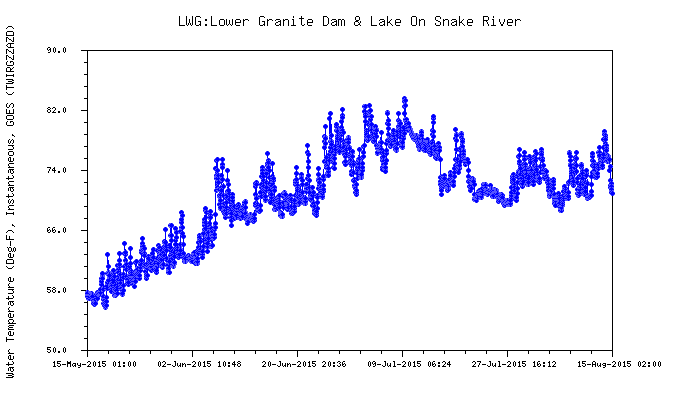
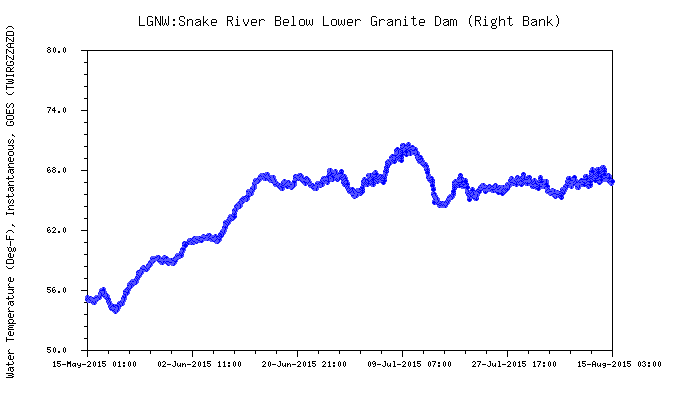
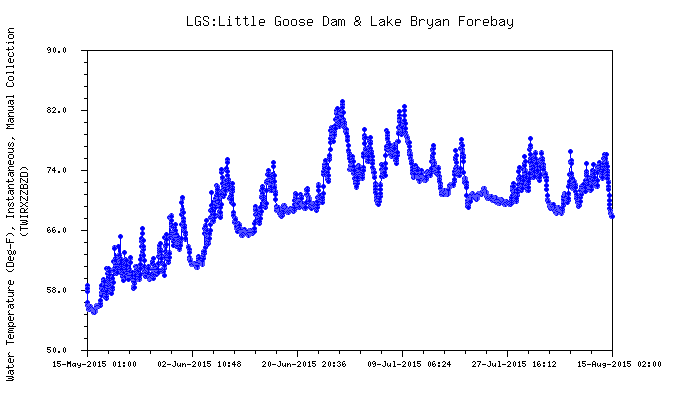
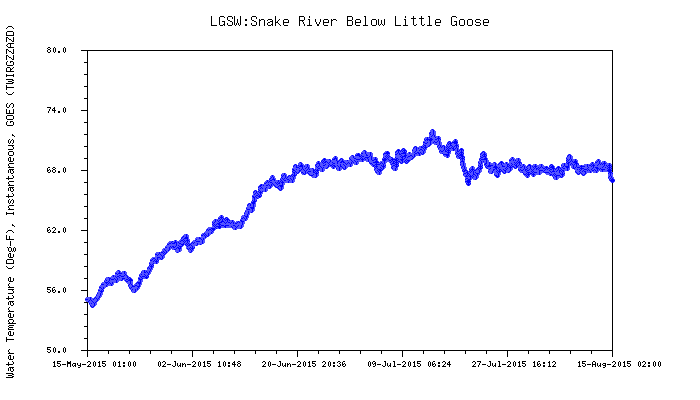
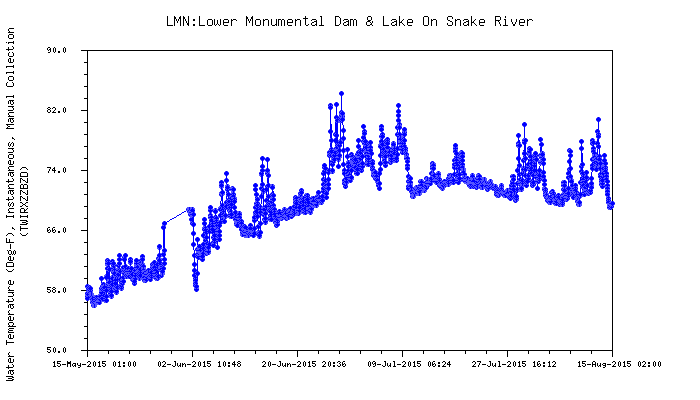
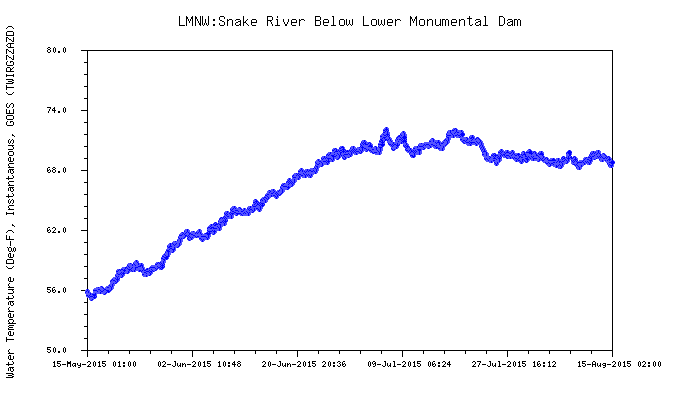


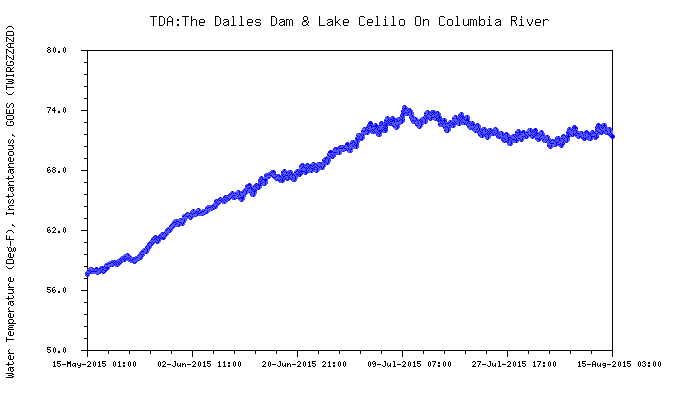
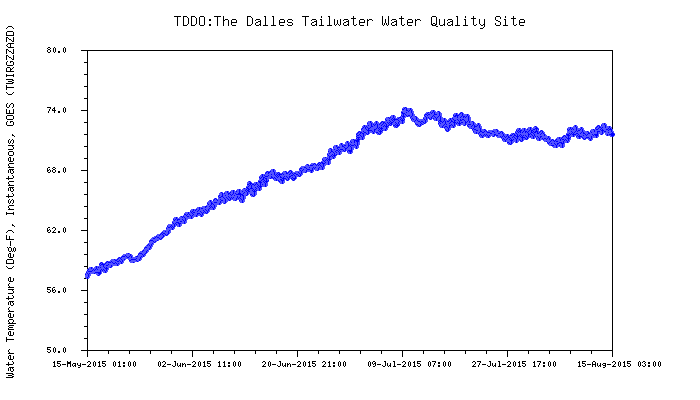
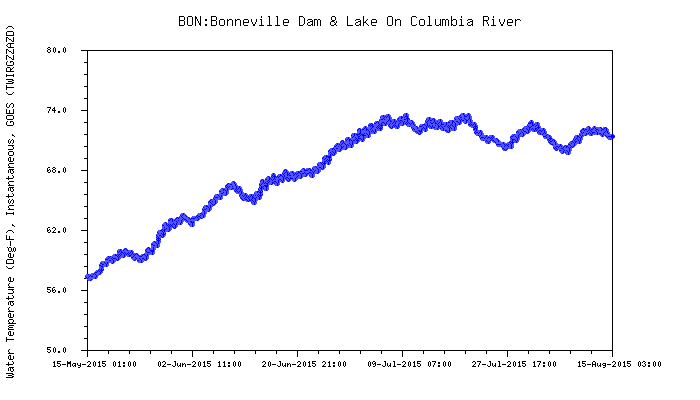
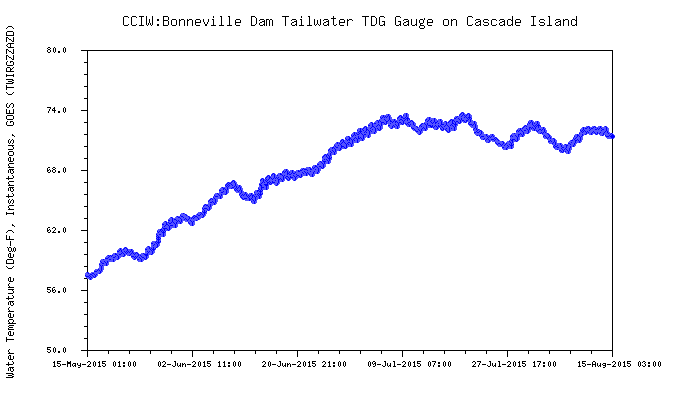
learn more on topics covered in the film
see the video
read the script
learn the songs
discussion forum
